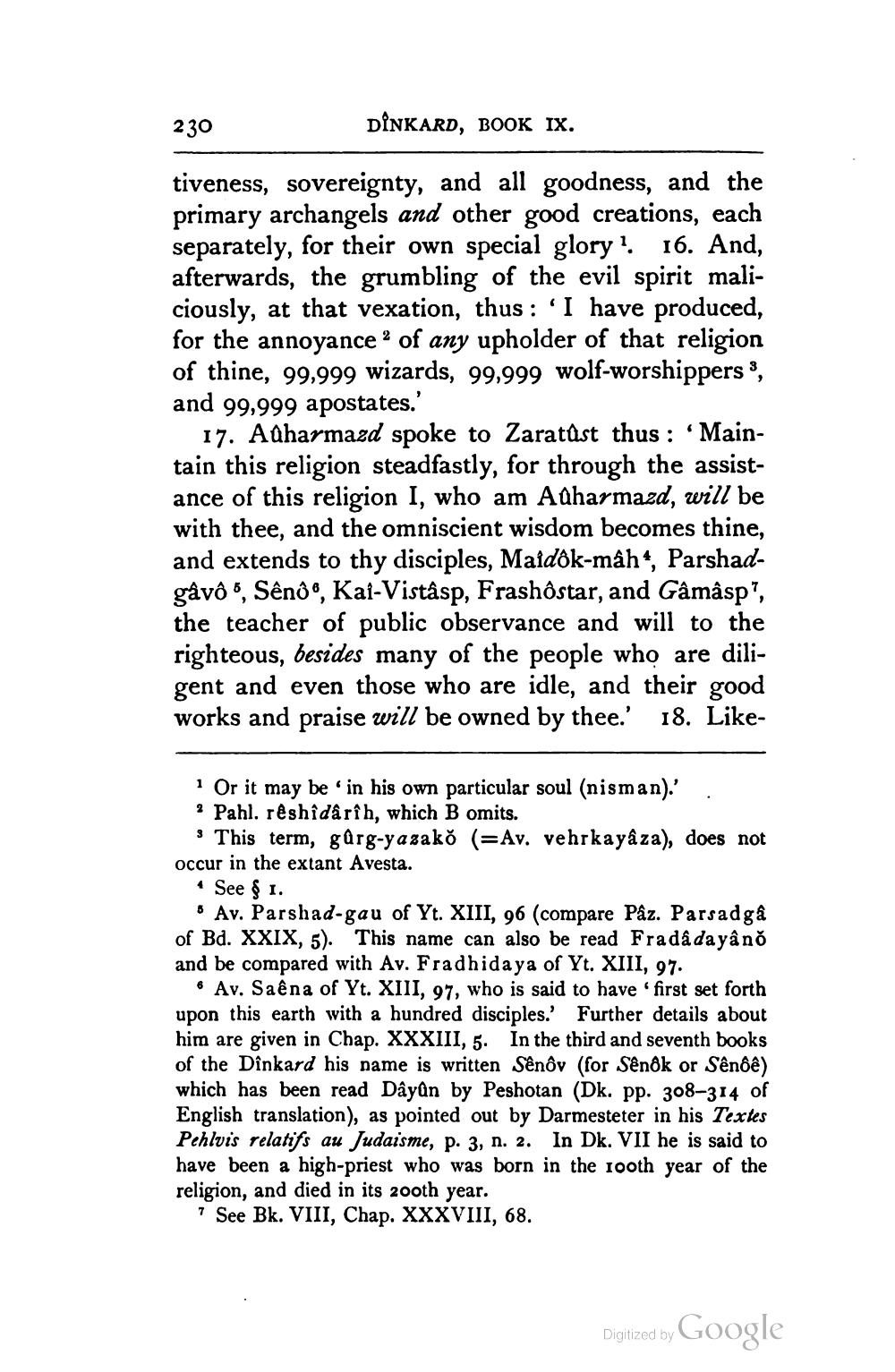________________
230
DÎNKARD, BOOK IX.
tiveness, sovereignty, and all goodness, and the primary archangels and other good creations, each separately, for their own special glory? 16. And, afterwards, the grumbling of the evil spirit maliciously, at that vexation, thus : 'I have produced, for the annoyance of any upholder of that religion of thine, 99,999 wizards, 99,999 wolf-worshippers , and 99,999 apostates.
17. Adharmazd spoke to Zaratust thus : Maintain this religion steadfastly, for through the assistance of this religion I, who am Adharmazd, will be with thee, and the omniscient wisdom becomes thine, and extends to thy disciples, Maidôk-mâh4, Parshadgâvô ", Sênôe, Kai-Vistâsp, Frashồstar, and Gâmâsp?, the teacher of public observance and will to the righteous, besides many of the people who are diligent and even those who are idle, and their good works and praise will be owned by thee.' 18. Like
i Or it may be in his own particular soul (nisman).'. ? Pahl. rêshîdârîh, which В omits.
* This term, gürg-yazakó (=Av. vehrkayâza), does not occur in the extant Avesta.
+ See $1.
. Av. Parshad-gau of Yt. XIII, 96 (compare Paz. Parsadga of Bd. XXIX, 5). This name can also be read Frada dayano and be compared with Av. Fradhida ya of Yt. XIII, 97.
Av. Saêna of Yt. XIII, 97, who is said to have 'first set forth upon this earth with a hundred disciples. Further details about him are given in Chap. XXXIII, 5. In the third and seventh books of the Dînkard his name is written Sênôv (for Sênôk or Sênôê) which has been read Dâyūn by Peshotan (Dk. pp. 308–314 of English translation), as pointed out by Darmesteter in his Textes Pehlvis relatifs au Judaisme, p. 3, n. 2. In Dk. VII he is said to have been a high-priest who was born in the rooth year of the religion, and died in its 200th year.
See Bk. VIII, Chap. XXXVIII, 68.
Digitized by Google




